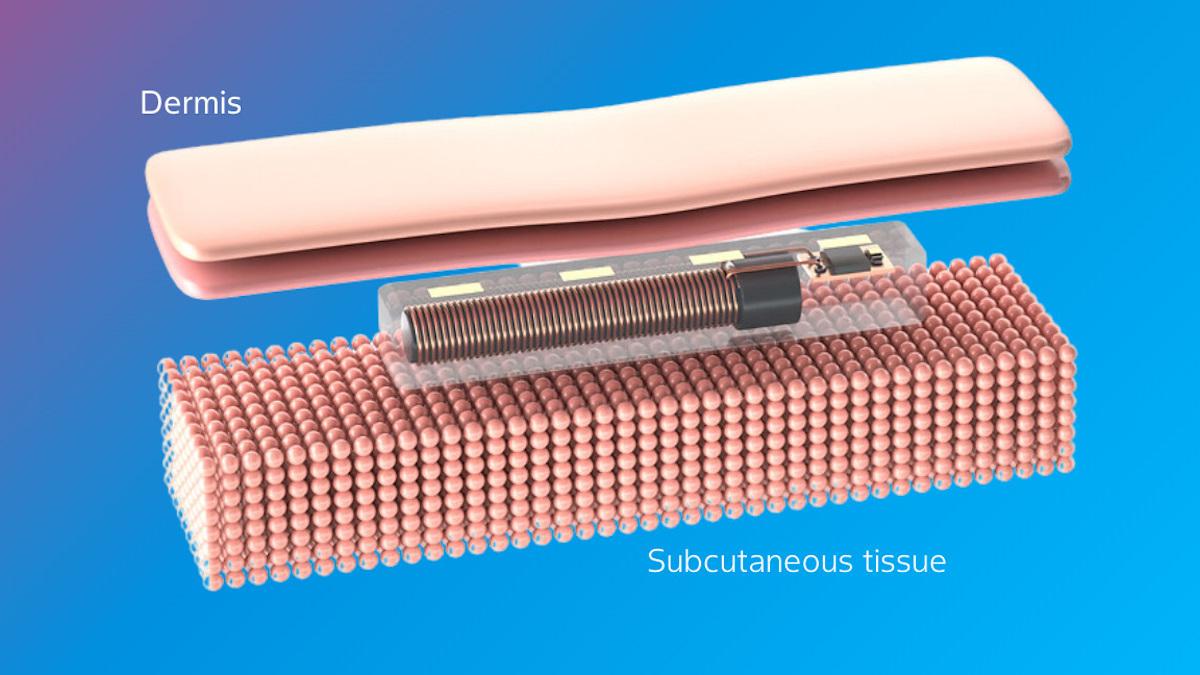Bayer partners medtech firm Impli on fertility R&D

Bayer has entered into an alliance with Impli, tapping into the start-up's implantable hormone-monitoring platform, which has potential in fertility treatment and other indications.
Impli's biosensor – which is implanted between the dermis and subcutaneous layers of the skin – can continuously monitor the levels of hormones used by fertility specialists to guide egg retrieval and embryo transfer, and also to monitor pregnancy development.
The device combines the subdermal sensors with wireless communication using near-field communication (NFC) signals that can deliver real-time readings of three hormones to a smartphone.
Along with guiding fertility treatment, the device may also allow the early detection of ovarian hyperstimulation syndrome (OHSS), a possible complication of in vitro fertilisation (IVF) techniques that can lead to a range of symptoms, including pain, weight gain, bloating, and – in severe cases – blood clots and breathing difficulties.
At the moment, women undergoing fertility treatment can require regular blood tests – sometimes daily – which is inconvenient, stressful, and often isn't sufficiently accurate for optimal IVF.
An estimated 189 million people deal with infertility problems worldwide, with many facing challenges in accessing very expensive and intensive treatments with poor success rates. Impli believes the process could be made cheaper and more effective using its device.
Bayer's interest in the hormone-monitoring technology extends beyond IVF, however. The company – which, like many pharma groups, has made a concerted effort to embrace digital technologies that can complement its drug development focus – said it could have applications for conditions like "stress, sleep, weight management, cardiovascular health, women's health, or bone health."
Anna Luisa Schaffgotsch, Impli's CEO, said that the Bayer alliance is "an opportunity to innovate and transform lives."
Switzerland-headquartered Impli came on Bayer's radar when it won an innovation change run by the German group at the HLTH Europe conference in Amsterdam earlier this year.
Terms of the partnership were not disclosed, but it will focus on early-stage research to look into use cases for the platform.
"New technologies are helping us answer one of the largest consumer unmet needs: better understanding what is happening in their own body and what it means for managing their health journey," said Aquil Harjivan, head of front-end innovation for Bayer's consumer health division, which has been at the forefront of the group's digital strategy.
Last year, Bayer launched a dedicated digital consumer health business unit that aims to develop new products that will allow people to take more control of their health. One of its main tasks is to seek partnerships with digital health technology developers.
Earlier this year, Bayer also launched what it says is "the first step of a new heart health ecosystem" in the US, with a heart risk assessment powered by Huma. The online tool assesses an individual's risk factors for developing cardiovascular disease over the next 10 years.
"Each of us is on a unique health journey," commented Harjivan. "Better insights and diagnostics coupled with trusted self-care products pave the way for us all to better manage our own journeys."












